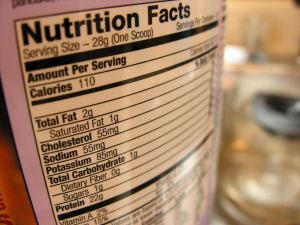Codex Alimentarius Adopts Vitamin Guidelines
4 July 2005 – The Codex Alimentarius Commission has voted to adopt potentially restrictive guidelines for vitamin and mineral supplements proposed by the Codex Nutrition Committee. In its 28th session here in sun dried, heat plagued Rome, the planet’s supreme food regulator has given a nod to industry in approving guidelines for food supplements over the strenuous opposition of consumer representatives.
Several associations representing consumers and health practitioners were present under the banners of the National Health Federation : Friends of Freedom from Canada, the Europe-based Alliance for Natural Health , Danish MayDay , La Leva from Italy, the US Health Freedom Coalition as well as the Dr. Rath Health Foundation .
The question is really, whether freedom of choice in healthcare will be respected. Although the guidelines are not in themselves restricting supplement sales, they do prohibit information about diseases and nutrition and they call for future dosage restrictions to be set after scientific evaluation of the safety of nutrients contained in pills and capsules. Consumer representatives who attended the meeting are concerned that the guidelines, in conjunction with the European Union’s directive on food supplements, may be a first step towards heavy controls on nutrition that would favor the pharmaceutical approach to disease over active, consumer-driven prevention.
Flaws and some unclear points that should have sent the guideline back to the Nutrition Committee for reconsideration were pointed out by Scott Tips of the National Health Federation . Industry representative David Pineda of IADSA , the International Food/Dietary Supplements Alliance said instead that after more than 10 years of discussion in the Committee, the consensus that was reached was a positive step and should be adopted…


The Codex Alimentarius Commission – 85 members present
After dealing with previously submitted comments by Australia, Brazil, China and Venezuela, the vitamin and mineral supplements guideline was passed by a passive vote – no objections from a full 85-member-assembly – one item on a lengthy list of standards and guidelines to be adopted.
“What now?” was the question of those concerned health freedom advocates who attended the meeting, one of whom answered: “We may have lost a battle, but the war is far from over”. Indeed, much now depends on the discussions recently initiated by FAO and WHO, to work out a proper model to assess the risks inherent in supplements. “But rather than only assessing the risks, they must look at the immense benefits from these nutrients as well as the risks, before they can reach a proper decision”, commented another one of the activists. Agreement is building that risk assessment procedures developed for toxic chemicals cannot be applied to nutrients without making a dog’s breakfast.
So where do we go from here? We must continue working to make sure that the benefits of supplements are not overlooked when deciding whether to limit quantities or composition of supplements, but this also ties in to a much larger issue: Are corporations going to decide how we should take care of our health or will people be free to choose?
There is a tough time ahead. Perhaps what is needed is a real change in health care, a reform that would sweep pharma-dominated medicine, which in the US has become the major cause of death and injury, off its pedestal of exclusive ‘guardian of health’ to allow all kinds of alternatives to fluorish so people may have a meaningful range of choice when it comes to health and well being.
The National Health Federation had argued the guidelines should be re-considered, because they are contravening the World Health Organization’s own procedural rules, alas to no avail:(
1. The guidelines do not state what purpose they serve, although that is required by Codex rules adopted as recently as a year ago, but well before the November 2004 Nutrition Committee meeting that finalized the text.
2. There is no clear definition as to what vitamins and minerals are covered by these guidelines. Although supplements “should contain vitamins, provitamins and minerals recognized by FAO and WHO”, according to the text, there is actually no publication of the FAO or WHO that provides lists of recognized vitamins, provitamins and minerals.
3. Certain countries are exempted from the application of the guidelines. Those countries that consider vitamins and other nutrients should be regulated as drugs are exempted. This means harmonization of different national laws, the goal of all Codex activity, is not being forwarded by the guidelines.
I might add that, while the guidelines ask for restrictions on supplements in the comparatively liberal countries, the really backwards view of “nutrition is really medicine and any of those nutritional supplements are drugs” is acknowledged as being quite acceptable. Indeed, one of the amendments to the guidelines was Australia’s demand to emphasize that “These Guidelines apply only in those jurisdictions where products … are regulated as foods”.





